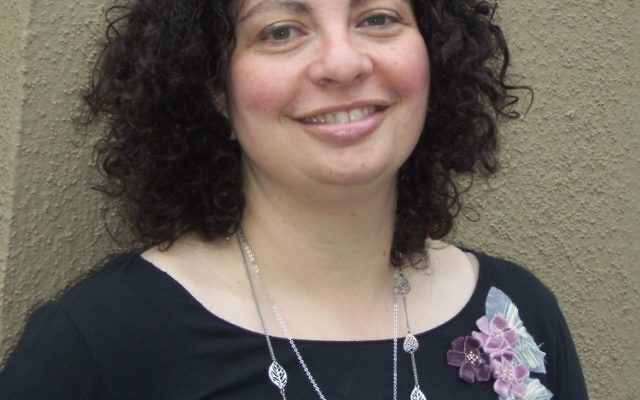How Do You Like Atlanta?
Taking Root
By Rabbi Ruth Abusch-Magder
From the moment my family arrived in Atlanta this summer, people have asked us how we liked the city. The question was expected; a dual Jewish professional couple, we have moved many times in our careers, each time to a very different setting. Inevitably, people ask how we like our new home.
We have developed an approach to getting to know a new town. So immediately upon unpacking, we set out to explore. In Atlanta this means hikes along the Chattahoochee, exploring the offerings at Your DeKalb Farmers Market, walking or poking in the stores in Little Five Points.
Even as I miss the hills and water of the San Francisco Bay area, where we lived, and the friends we left behind, I find much to enjoy in Atlanta. I point to these experiences when talking about what I like. But a recent trip to California helped me realize it is much more than that.
As it was my first trip back, not surprisingly I answered the question of how I liked Atlanta quite often. On my final evening, I sat in the home of a close friend who spent his formative years in Dunwoody. As we discussed the differences between the two communities, I told him that one of the things I had noticed in Atlanta was that the first question people ask upon meeting someone is not “What do you do?” with the intention of placing someone professionally, but rather “Where do you belong?”
Nodding, my friend provided that questions of belonging are part and parcel of what it means to be from the South. My friend is wise. Born in the North, his family roots are in the South, and as a diversity trainer he thinks long and hard about how different parts of America are distinct from each other. So I accepted his assessment.
But my friend is not Jewish, and questions of belonging resonate with my deepest sense of what it means to be a Jew. Relationships are at the core of Judaism. Belonging is both theologically and sociologically important to Jewish life. Not only are the people of Israel in relationship with G-d, but with each other.
Genealogies matter. For example, King David is the son of Jesse, the son of Ohed, the son of Boaz and Ruth; he is the father of Solomon and Abshalom, Amon, Tamar, and more. These were great individuals, but they were not lone wolves. They were part of communities, clans and families. Because to be Jewish is to be in connection.
In Atlanta, getting to know someone usually begins with talking about where I grew up: Canada. Where we go to synagogue: We have been enjoying visiting the wealth of congregations in the city across the denominations. Who my children are: I have two.
These questions place me in context and connection. It is as if to say that who you are and what you do may be important, but no one is an island onto herself. Who we are owes not only to our own efforts, but to our relationships as well.
It is the confluence of Jewish and Southern values that I now point to when asked how I like Atlanta. I’ve met people here who remember my grandfather, an eye doctor in Montreal. I’ve been invited to every synagogue and to myriad Shabbat dinners. I’ve seen women post to the Jewish Moms of Atlanta to invite total strangers to their homes for holidays because everyone should have a place to belong and connect.
I am not naive. I have dedicated much of my rabbinate to helping people feel connected, and I know that Jews are not always the most welcoming bunch and at times misuse connection to exclude “others.” But our tradition teaches that any trait can be used for bad or good. And in my experience so far, that special confluence of Southern and Jewish values has been essential in helping me feel like who I am, where I come from and who my people are matter; it helps me feel like I belong.
Rabbi Ruth Abusch-Magder, Ph.D., is passionate about Jewish living, family, diversity and Jewish food. She works for Be’chol Lashon, an organization dedicated to celebrating the diversity of the Jewish people. She lives in Sandy Springs with her husband, David “Dr. D.” Abusch-Magder, and is mom to two teens. You can find her online on Facebook and @rabbiruth on Twitter.





comments